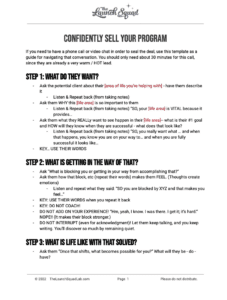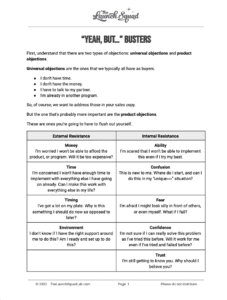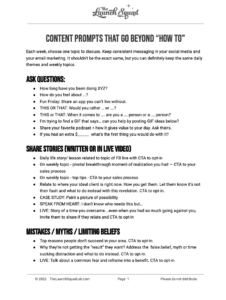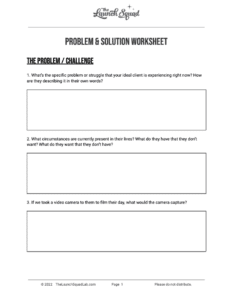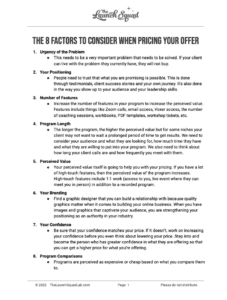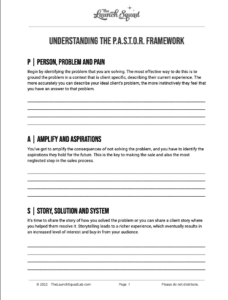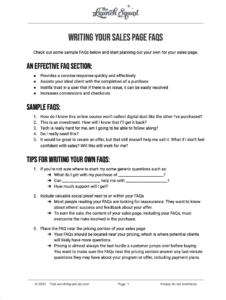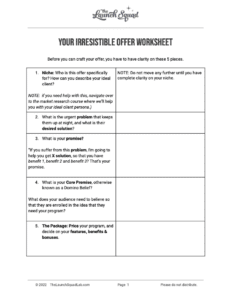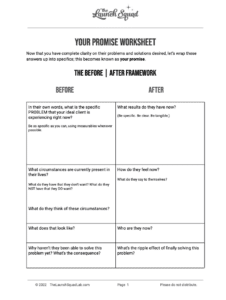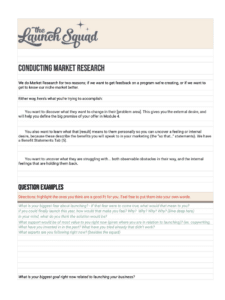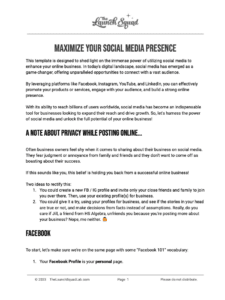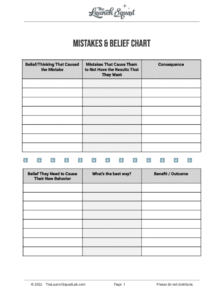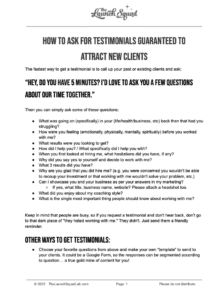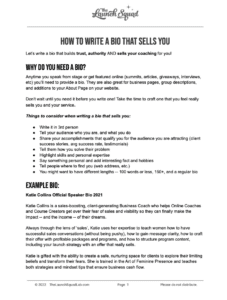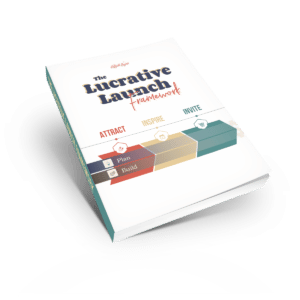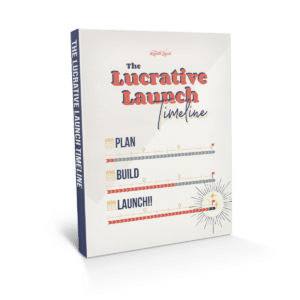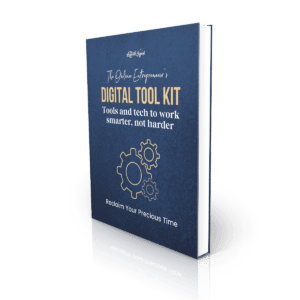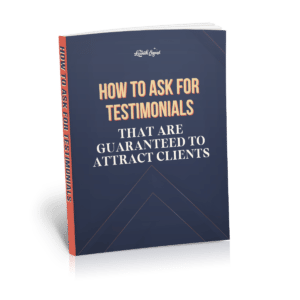About Jonah:
Jeffrey: Welcome to the lighten your launch podcast today, we're talking about ethical, online marketing, stay tuned.
Jeffrey: Welcome back to the show. I'm Jeffrey and I'm back again with Katie Collins. And today we want to talk about marketing with authenticity and alignment using the power of emotional intelligence.
Katie, tell us who we're talking with today.
Katie: Yes. I'm so excited to introduce our guest today.
Cause I've known him for many years. He had been trained in nonviolent communication nine years ago and has hosted hundreds of workshops teaching this communication strategy before becoming a coach. And as he was growing his coaching practice, he learned the usual strategies for growing his business and he found himself resisting doing most of it.
Instead, he had a strong desire to have the same sense of safety and deep, authentic trust building that was foundational in his nonviolent communication workshops. And he wanted that mirrored in this marketing for his coaching business. So he developed his system, emotional, intelligent marketing, a way for a way of marketing that's founded on transparency, authenticity, and empathy. In a very short time, he developed a great social following and gained clients by using this method. And today he'll share some of that with you. So welcome to the show, Jonah Richmond.
Jonah: All right. Thank you so much for having
me guys.
Jeffrey: yeah. Welcome to the show.
Jonah: Awesome. I just want to say to 'em I don't know if you know this, Katie, but you were the first one-on-one business coach I ever
worked with.
Katie: Oh Yeah.
Jonah: Yup.
Katie: Cool.
Jonah: Yeah.
Katie: Hopefully it was a good
experience.
Jonah: It was a good experience. Um, those were the early days. So we had a lot of conversations around what to set my price
at and,
Katie: I recall.
Jonah: uh, and, um, I think that's, that's still an area that I'm working on.
Um, but yeah, it's been it's, it's, it's been great. And it's so fun to be connecting with you
like this.
Katie: I know all these years later. And it's so funny when I was writing the intro, I'm like, oh, I remember the resistance, but I wasn't going to call you out for it. But I remember, you know, and I mean, we all get to do business the way we want to. And so I think part of growth as an entrepreneur is hearing different mentors, share their strategies and then making the intuitive decision.
This is either a strategy for me or it's not, and that's okay. Right. And I think a lot of us in the start, we feel like there's something wrong with us because we're not aligned with the strategies we're learning that everyone else is doing. But in reality, you were just ahead of the game and you know, it's like you just wanted to figure out how to do this. your way.
So I'm glad to hear, you know, what you've been doing. I mean, I see what you've been doing, but I'm glad for you to be able to share it with our listeners. So thanks for being here.
Jonah: cool. Yeah. Happy.
Katie: Um, so we really want to start off because you know, your system's called emotional, intelligent marketing. Like how do you define emotional intelligence and how does that get, you know, brought into marketing, like translated into marketing.
Jonah: Yeah. So, uh, great question. Um, emotional intelligence itself is, is essentially the, the development of our ability to understand our emotional world. So like, can we, can we name emotions when, when they're coming up in ourselves, are we able to understand the emotions and other people? And, uh, and studies show that when we're able to do that, and we develop any emotional intelligence, our relationships improve our quality of life improves, and it can help in a lot of ways.
Um, but, but for me, I mean, it's, I, I got into emotional intelligence first from the, from studying non-violent communication. And, um, and I got into that really because of how much I struggled with communication. I grew up, I was extremely shy. I had a stutter, which I still stutter sometimes. And, uh, and I had, at times what's called it's, it's an extreme form of shyness called selective mutism.
So it was actually like so extreme at times where I would literally be like in groups and, or at school. And I just like, couldn't speak like, so there were like, in my most extreme times it was like someone would say something to me and like my, my mouth, I couldn't even open and words would come out. And, uh, and it's it's, um, it's, it's something that, uh, You know, it's heavily related to anxiety and it's, and it's, um, uh, it's been just a big part of my journey of like, figuring out how do I, how do I kind of overcome that?
Um, and so that was what led me to, to non-violent communication, um, and the emotional intelligence, but part of the thing that I realized, and this is where marketing kind of comes in with all of this is like, what I was doing back then was trying to find ways to like, figure out how to speak by sort of like codifying it.
Like I would want to, I I'd like listen to how other people were speaking and I would want to be like, okay, so this is like the cool thing to say. And these are the not cool things to say. And, and. It just sort of like trying to find this way to like, figure out how the heck to communicate in this sort of structured way.
And of course, all that did is, was it just made it worse? Like, like my, my anxiety would get more intense. My shyness would go up. I would feel like, oh my God, I don't know what to say. I would have this extreme perfectionism around trying to communicate. And, uh, and so what, what I've learned through emotional intelligence is, um, one of the most important things about communicating actually comes from the, the ability to be spontaneous, like the ability to, to be more just kind of in touch with ourselves and come from an inner place of confidence and, and then just kind of communicate spontaneously.
Um, and so that's a huge part of now what I bring into the way that I do marketing and the way that I teach marketing, because that, that like getting stuck on, on what to say and how to communicate and what content should I write. And people kind of get into that mode of like how I was as a kid, just trying to communicate in general of like, oh my God, I have to write the perfect thing I have to, I have to codify this thing.
I need to learn somebody like systems so that I know what I'm supposed to say. So I don't screw this up. And, and, and I do what I like to do is help people get into this place of really feeling safe, to be more spontaneous and more authentic when they show up online,
Katie: I love that. I love the story behind it too, because it is, you know, we all know anxiety. So. right, Like it takes, so I have a loved one that suffers from it, like, uh, incredibly. And it just it's exhausting. And so I, as a business coach, I see that problem all the time. What do I say? And I know I should live, but I don't know what to say. right. And then they don't, and then there's the shame and the blame that comes up because they're not doing what they're supposed to be doing. And so I just love your approach. That's you know, like, well, stop trying to do it someone else's way. And let me show you how you can do it from the person you are instead of trying to be someone that you're not right.
So,
Jonah: right. Yeah. And it's not that there's anything wrong with learning, like systems and formulas. Um, but, but yeah, it's like, what's the foundation that you're coming out of. Like, like, where's that? Where are you emotionally inside? Um, where are you? Like, like what's your attitude about the way that you're showing up and when you, when you change the foundation of that, that's what.
You, you know, things start to really kind of take off in a different way or, or what I find is like people kind of blossom, um, in there in terms of the way that they're showing up online, because suddenly it's like, they're, they're just showing up from a different kind of energy, an energy, more of safety and exploration and experimentation.
Katie: Yep. I love that. I had a friend, um, a few weeks ago, she said, you know, she was launching her program and she said, you know, have you seen my sales emails? Like, I'm so proud of myself. I actually like wrote them and I'm sending them out and she's like, I hate every minute of it, but I'm sending them out. And I was like, you got to shift that energy.
You have to say something like, I get to message these people every single day to remind them how important this is, you know? And I was kind of, you know, like rubbing elbows with her. Like I get to do this. Yay. But there's so much to be said for approaching something in business and your attitude about it and how well that said thing is going to go.
And I've witnessed myself on live videos in my Facebook group when I'm not feeling. And when I am, and I can tell, and I remember this one video, I thought, oh my God, take that down. Like you can just see it all over your face that you don't feel well, you know? Uh, so yeah. it's um, we got to get in the right. state of
Jonah: Yeah. Well, and, and part of it for me, I mean, I liked that. And part of it is like, is actually what I, what I like to lean into and encourage people to lean to lean into is actually like, like that feeling afterwards, after we post something of, of embarrassment or that like cringe feeling that could come up inside.
To learn how to learn, how to actually not like, kind of get over that in a way, or like, um, except the fact that that could come and to realize, like, it really doesn't matter. And that's one of the things. So, so I kind of like prepared a few things that I wanted to share on this podcast. I don't know exactly where, where we're going to go in this conversation, but, but, um, but it's basically like three tips for attracting clients on social media.
Um, without just sounding like the same, like everybody else, like the same kind of boring Rhodes stuff that everybody's saying. And, um, and so the first, the first piece of that is, is what I call, um, developing a I can't F it up attitude.
Jeffrey: Yeah, I liked that.
Jonah: So like, so like when, um, like when I was first marketing, when I was first started teaching Marty. I had a lot of times where people would, like, I got to work with my clients and we would, I would teach them all the, all the insights and the skills and the techniques. And I mean, I hadn't been doing it for a long time, so I had a lot, I felt like that I could teach them.
And so often they would just like, not post and then we'd meet again and I'd be like, okay, so what happened? And they're just like, oh, I just like, I couldn't do it where they would send me a message. And they would just like share some, some reasons why they just like weren't posting or they weren't able to post.
Or like, one of the things that really stood out was like, people would apologize to me. They'd be like, oh my God, I just posted this thing. But I want to apologize because it doesn't follow all of the tips that you taught me. And I, and that was what really made me realize, like how important this, this shift is like, like, yeah, adding on techniques and skills and formulas and templates and all of that stuff is not that that stuff is bad.
Getting that, having that fundamental, like I can't F this up attitude as your foundation just changes everything. And so a lot of what I like to do is actually encouraged people like post crap, like, like, like, post the stuff that makes you cringe post the stuff that, that you just wrote on a whim, like get used to that feeling of just getting yourself out there and realizing you can't mess it up because like, you, you won't like, there's, you're not going to say something.
That's gonna make people that's going to ruin your business. You know, it's just like this fear that we feel the things. It is the same. Like when I was a kid, I was like, I can't speak because I'm going to say something and everybody's going to hate me, but I mean, it's not
true.
Jeffrey: W where, where in fact, by not being present and not saying anything, that's the thing that's going to ruin your business.
Jonah: it, it, it does. That's actually, usually the worst thing that you could do is just never showing up.
Jeffrey: Yeah. Yeah. That's huge.
Katie: Absolutely. It's funny. I just posted a mistake's post and I shared it. It was like from a couple of years ago, but it's like a picture of me laughing and I was like, you know, I'm a one on the Enneagram. I like things to be pretty perfect. Um, I mean, I'm not Perfect. but I strive to do my best. Right. So I don't like mistakes and I had made two huge mistakes.
Like one people opted in for a free gift and my automation was set to a different free gift. And 70 people got the wrong free gift before I
realized. And then, and then I was trying to send, um, homemade chocolate chip cookies to a team and event team that I used to work with and No, longer do. And I was sending them cookies, like wishing them, well, I sent it to the wrong hotel.
Jonah: no, no
Katie: Um, but it, you know, that I could just turn it into laughter and instead of failure. Right. And, and, you know, my point was, you know, messy action is always better than perfect inaction.
Jonah: at all. Totally. Yeah. Or even like messy action is better than taking forever to do the perfect action.
I mean, like if you're spending weeks and weeks writing one post like that, that extra time you're spending is not, is not going to benefit you nearly as much as if you wrote like 20 crappy posts in that
Jeffrey: right. Gosh. Yeah. And that seems to be such a big thread in our, our messaging, not, you know, several guests later, several podcast, episode later, it's the whole idea of perfection. Isn't what we're striving for at all. Right. Perfection is the killer of progress and, you know, just to get it out there,
Jonah: right.
Totally.
Katie: I know even like our mistake, you know, that you saw coming, coming on here. Right. Like some of our instructions were old, you know, and we were like, well, we're not perfect. Whoops. You know?
Jonah: Yep. Yeah. Yeah. W we figure it out, but that's, that's kind of like part of the trust thing, there's actually, um, like, like something about spontaneity with, with communication. There there's been studies that have shown or where they've researched, like, like what kind of groups, like, like group, when groups get together and they come up with creative ideas, like, like maybe a writer's team for a show or something like which groups tend to work the best.
And, and the, the, the thing that they noticed the most in the groups that are the most successful are the groups who, who interrupt each other a lot and not like, cause they're upset with each other, but because they're just like so excited and they're so spontaneous and they're so just like, like bouncing ideas off of each other, really.
That, that, that actually creates this, this level of, of safety and, and just enjoyment that just like creativity does blossoms in that kind of environment.
Jeffrey: Yeah, I love that. Definitely the funder groups are the ones that are kind of active and popping up, you know, collaboration and
Jonah: And like, and like, I also want to say, like, to be sensitive because I'm the kind of person who like when I was younger and even now, I mean, I'll get overwhelmed in groups like that. Like w where people are just like popping out ideas. And, and even when I first started social media marketing, it was like, I would see people posting a lot and I would just get like freaked out.
Like my nervous system would, would freak
out.
Jeffrey: a hundred percent, I'm definitely the kind of person who sits back, lets people toss out all their ideas and like I'll just hang out and wait until I actually have something to say, you know, and I'm usually the last one to like pitch in and yeah.
Jonah: Yup. Yup. Yeah. And that's often been me too. And so that, that's part of like, it's like, I, I don't think there's anything, there's nothing wrong with that. Um, but I found that there's a lot, like by, by really working on like healing, my, my, uh, my relationship with myself, like I do a lot of interpersonal healing.
I mean, I spent eight years just teaching non-violent communication and personal growth before I even did marketing at all. Um, so like, you know, really doing work on, on like my thoughts about myself and my attitude and like my inner child and giving myself love and, and like meditating and feeling the sense of inner safety.
Like all of that stuff has made a huge difference. And as marketers, that's part of why I feel so like, drawn to. Helping people in a way where we're bringing that in more, like, it's not just like here, follow this template and just get it out there, but it's like, going, like, what's getting in the way, like, like, what's this thing, like, why are you getting this feeling that's making you take forever to write this post and kind of diving into that and working through
it.
Jeffrey: in your opinion, what's what's wrong. This is maybe too broad a question, but what's wrong with marketing? Like what's not working.
Katie: Or what are your pet peeves?
Jeffrey: Yeah. That's probably a better way to say
that.
Jonah: Interesting question. Um, uh, well, so, so, so here's something, that's it, this is an interesting question for me at this time, because there's, I'm actually taking on a practice. So something that I've been, um, like, like when I first started offering myself as a marketing coach, I was, I was focusing heavily on the idea.
So I was like, I was like, okay. So, so I'm really like, my goal is to be an ethical marketer and there's all these unethical marketers out there. Um, and that I've honestly been leaning back a little bit of, of trying to have that perspective because, um, I feel like, you know, uh, there are things that, that I would prefer not to do like that, that I don't want to do that.
I feel like maybe make people uncomfortable or, um, you know, like, especially if someone's like using a bunch of techniques to lead someone into a sale. And then the thing that they're buying isn't even actually helping them, which is like basically snake oil salesman. Um, but it's like, I've been, I've been really leaning into trying to not get too into like I'm judging all the other marketers out there.
Kind of attitude. It's been another shift for me that I found has actually helped free me up a little bit more because like, like, like watching everybody and being like, Ooh, like they're doing that gross thing and kind of judging all of the other marketers actually increased my own sense of, of like, oh, I better do this.
Right. Like I better not screw this up. I better not. And so, so I've been trying to like, to spend more time, like seeing the humanity in the marketers who do things that I don't, that don't do them the way that I do it.
Katie: yeah. I went through a similar thing, like, you know, with my heart centered sales and there can be pushy salespeople out there. And I see marketing techniques that drive me nuts and we do things differently at the launch squad. Um, but I, uh, a while ago I decided to stop calling it out because I felt like it was negative marketing and I would rather prefer. In a more positive way. Like this is what I stand for, you know?
Jonah: yeah,
Katie: But, you know, one of the things that you and I connected on recently, Jonah, like that, that reconnected us was I sent this email talking about misleading marketing and I was, I was taking a stand against misleading marketing, like the people that say, you know, I went from zero to six figures in 12 minutes who wants to download my free report before I make it paid.
How many posts a day? Do you see that say something like that. And like, it's not true that that didn't happen in whatever timeframe. They said that there was a lot of things that happened in a lot of failures along the way and lessons that they got along the way. And, you know, and so I just, I can't stand that kind of like, oh, she launched and went from zero to 78,000.
Like there's a lot that happened in between the zero and 78,000. And it wasn't just the launch. It was her offer her alignment, her audience, her messaging, the launch itself, her energy during the launch, right. Like the follow-up, the follow-up and the follow-up, the sales emails, the backend, all of
Jonah: the years of learning how to do all of that stuff and
Katie: Right this man, you know, that, that they put into that in the, the trying and failing and launching and failing. All of that was included in that person's zero to 77,000. And we just, as a squad, take a stand against that kind of marketing.
Jonah: sure.
Katie: sales calls, we're never going to promise how much they're going to make.
We're just not going to,
Jonah: yeah, yeah. Yeah. I do that as well. I haven't done any like, oh, this is, this is, this is the trick to earn six figures or whatever. And people will say things like that too. Like, like, oh, this is how you get to six figures or you do, you pick a niche and then you do this and you do this. And it's like, okay, you just gave like the most basic elements of marketing.
and it's like, um, it's good. It gets people's attention. The reality is that stuff really works. I mean, that's why people use it so much. Um, but yeah, I mean, I like the idea of, I, I lean towards not doing that, partly just because I get tired of seeing it. Um, I also think like this was actually inspired by another marketer who I really admire a lot.
Um, whose name is George cau and, and he, he points out like, like he, he sees it as like, whenever we're marketing, we're basically like we're speaking to we're speaking to desires and people like, like, so if we say like six figures, this is how you make six figures. You know, people desire that. And so obviously it works and, and I mean, our goal as business owners is often to, to make money and there's no denying that, but, but like the same people who desire six figures are, are the same people who desire, you know, spiritual growth or desire, like this sense of, of like feeling good in their heart and wanting to do good things in the world.
And so it's like in our marketing, we were basically bringing up and reminding people and evoking parts of themselves based on how we choose to market.
Jeffrey: yeah, I think that's a fine line of what you're talking about really is that there's we D we don't want to run the risk of. Demonizing, any kind of aspect of these entrepreneurs that they actually want, like, no matter what kind of holistic healer you are or what kind of practice you have, you, you still need money to make a business.
And that is a desire. So w I guess that's a fine line to still cater to what they're desiring without being in authentic. Right.
Jonah: yeah, right. Yeah. Yeah. And then, and then evoking other other desires potentially as well. I mean, I think, I think us like, like since the, since the three of us, like our goal is to, this is to help people make money, but also to help people. Evoke these other aspects of themselves. So, so like if the only thing that we brought up was like, oh, this is how you make six figures.
You do X, Y, and Z, and they'll follow my formula and you'll get there. It's like, we're not for one. Then it's like, we're only attracting the people who act, who that's, all that they want is just the money, you know? Like they don't have these other desires potentially, or those desires aren't being evoked in them.
And so being inspired by like, oh yeah, like, like ethics. And for me, it's emotional intelligence has just been such a transformational practice for me. That's why I speak so much on that. Like I want to, I want to invoke and then remind people like the value of, of being connected to your own emotional body and your nervous system and, and being able to like, create a sense of safety and love within yourself.
Jeffrey: where's the value in
Jonah: as marketers, but as people. And so that's what, that's what I get excited to talk about.
Katie: Yeah, So I want to talk a little bit about the two words. Um, you know, that we hear a lot in, in marketing, one being persuasion and one being manipulation, and I have my own feelings on these two words, but I'm just curious, and I don't think there's a right or wrong, but just like I would love for, for all of us to share a little bit about, I mean, obviously manipulation has a negative connotation.
Nobody wants to be manipulated into anything. Um, but is there. Um, is there a possibility for persuasion to be heart-centered right for, for persuasion to be an okay thing to do in, in marketing or in sales conversations? I'm curious. What, what do you think.
Jonah: Yeah, actually, we talked about this a little bit before we started, and I liked what you had to say about it a lot. Will you share
that first? And then
Katie: Yeah. Yeah. I mean, so I think, um, I say this a lot about sales. Like sometimes people don't quote unquote want what they need, because it sounds hard. Like, for example, if you're a health coach and you're trying to sell somebody on a specific way of eating, that's going to really solve their problem. Like go going gluten-free right.
Like you, that what a pain it's really hard to be gluten-free in the United States. And so there's just so much resistance, but as a coach, you've got to persuade them. Like, what's more important than the, you know, oh, that's gonna suck. Or the, oh, my body is going to transform because. Like my body is allergic to it.
Right. Or persuading your teenager to get off the couch and study for their driver's ed exam. So they can actually write. And they're like, I don't want to, um, I'm playing my video game. And so, you know, we persuade every day for the betterment of the person. And I think the distinguishment is, it's not the betterment of you as the sales person or the marketer, but it's that it's for the betterment of the person you're talking to.
And then it's about taking a stand to persuade them in the right direction. It's why we have debate club in high school. Right? Like it's like how to learn, how to make a case for what you really believe in and try to instigate change in that way. That's what I think persuasion is and can be associated with a heart centered approach.
Jeffrey: right. And you're kind of, you're kind of approaching it. I think to me that what distinguishes that is the intention is the intention behind it. Cause I could be persuasive to try and sell you something that you don't want, but I'm going to make money or I write and that's about me. Exactly. Right. And I think that's where, that's where there's a key difference.
Is that intention, is it about me or is it about helping.
Jonah: right. Yeah. Yeah. I like that. It's like, uh, when you, like, I heard, I was listening to somebody, I forget, I forget who it was, but it's like, it's like, what you're saying is like, if a kid, if a, kid's trying to persuade their parents to take them to Disneyland or something, um, it's like, do they just say like, oh please, please, please take me to Disneyland.
Or do they, like, where did they kind of fit it in like, well, you know, if you take me to Disneyland, it may help my like, Career, if I go into this career that has something to do with Disneyland or something, you know, like you make it something where, where you're, where you're getting them to kind of see the benefits and the thing that you think is best.
Um, I like it. I, I think like, w like what's coming up for me around, this is like, I, a way that I've been thinking about sales, um, is like, it's like, I think of sales as, as a combination of, um, of, of confidence and empathy. Um, so it's like, it's like, you're confident in, in yourself. And that's kind of what a lot of people, I think talk about when they talk about sales is like, and what a lot of like sales trainers will help us with, right.
Is like, how, how do we feel more confident? Like, how do we show up? Where in a way where, like, people get a sense from us that we're really confident that we can help them, or that we're really confident in what we have to offer so that they can. You know, in the thing too, like if we feel at first, then, then they feel it.
But then the other side is empathy, which I, which I feel like is not people use that word a lot, but I feel like it's not, it's not emphasized. Like it's not, it's not taught enough. And that's something that I taught for eight years doing NVC when I was just teaching that was, was like a really deep, um, meaningful, practical form of empathy, where, where, like, you'd actually practice this art of like really listening and understanding people in ways that would just kind of cause them to go through these emotional healing experiences or just like this really deep felt sense of being understood.
And what I found in, in like sales, like having conversations with people, um, is that I, when I bring in those two elements, but lean into the empathy side, Like giving them that experience of doing my best to give them an experience of feeling really heard and understood then, um, then it's like, like, like when I bring in confidence or I, or I educate them on something that might be kind of like considered persuasion, there's so much more interested because then they feel like that they've like, I understand them.
I'm coming from a place of understanding them because I think we've all been on those calls with people who are like, or it was like sales calls or situations, or just other types of situations where, where someone just started giving us a bunch of advice. Like, we're like, oh, I have this problem. And they're like, oh, well you got to do X, Y, Z, and, and all of this.
And then we're just like, Ooh, like, I don't even feel like you understand me. Like, like I've, I've tried using melatonin to sleep like a million times. I didn't need you to tell me that again, like, you don't understand like what I'm going through, you know? Um, so, so that, that level of. Understanding. And what I find too is like, when people have that experience, they want to work with you.
Cause they're like, oh my God, I wanna work with a coach who, who I work primarily with coaches. Like I wanna work with a coach who really gets me, who I can, like, who I know is going to fully understand me before they start telling me what to do or give me advice or
anything.
Jeffrey: kind of what you're describing is knowing when not to sell somebody, because you know, when you're really listening to somebody, you might find that they're not a match. And you know, you're not going to get to that conclusion unless you're really listening to somebody and their problems.
Katie: Yup. Yup. And that happened for me a few times when I would sell for other people. So I would be on their launch team and I would be the one, you know, reaching out and doing like the social selling quote unquote. And you know, and then I would speak to the leader of the company that was selling the thing.
And she'd be like, what about this person? And I would say the scenario of that person and why that person said no. And she would push back like, well, that doesn't matter. Like I said, oh, the timing wasn't Right.
You know, she's in a grad school program and she's a single mom with 18 kids, you know, something that was like, like a big deal, you know, I'm exaggerating obviously.
And it was like, oh, it doesn't matter. You know, there's plenty of time for her to do this. And it's like, no, I actually listened. And I personally don't feel like it's the right.
time and I'm not going to sell someone into a $16,000 program when I know it's not the right time for them, because I know I'm going to process the refund in three weeks, two weeks, one week, like I've been through this for 10 years, you know?
Jonah: yeah. Or they're going to sign up and they're going to resent.
Jeffrey: Yeah, yeah,
Katie: And instead would
Jonah: they, they didn't have the time
for it.
Jeffrey: yeah.
Katie: And it's like, you didn't listen to me. And I've had people say that to me. So I've really learned that lesson the hard way. But on the flip side, they really respect you. When you say like, I'm going to follow up with you when that grad school program is over or, you know, whatever that follow up is, but truly listening to people is like, step one of sales and all right.
So this is a really good segue, Jonah, cause you do something that I applaud, um, and that is offering free coaching in exchange for a bit of market research. So tell us a little bit about that process and how that's really helped you gain a following and gained some clients, because I think you're asking really good questions.
You know, it's really informing your whole business here.
Jonah: Yeah. Um, yeah, so that's actually how I, how I've grown this, this business. Um, when I started this business, I, I started by just deciding, and this is what I encourage coaches to do, like most coaches, unless they're, you know, already in like doing, you know, really well and have too many clients already. But if you're, if you don't have enough clients or you're just starting your business, um, basically I, I would ask people if I could interview them.
So, so I, so I knew what my niche was and my target market was. And then I would just reach out to those people and ask them if I could interview them. Um, and then particularly like if someone was engaging with my content, so I'd start posting content. And then if someone was engaging with that and I would kind of peek at their Instagram page, I do, I'm mainly on Instagram.
Um, and if they've seen like, oh yeah, this person seems. Uh, a good fit, like someone who's my ideal client. I would ask them if I could interview them for research and actually lead with the interview, not the free session. Um, like, like, Hey, can you help me? Like, I'm working on this, you've been engaging with my content.
I really appreciate that. Do you mind if I interview you and people always say yes, and then I'm like, oh, and I'll give you some free support afterwards. Um,
Jeffrey: I love
Jonah: and like, um, I did it in the beginning really with the idea of like, oh, this, this is going to help me learn. Like this is going to help me get content ideas.
This is going to help me further develop my niche and my message, because I'm having conversations. I'm not just like spinning in my head in circles at home, like trying to figure everything out on my own. Um, so, so I, I was learning a ton and I, and I started enrolling clients. Like I didn't even have 200 Instagram followers yet, and people would come on these interviews and I'd give them some free coaching and then they would want to hire me.
And, uh, and so I basically, I still do that model. Like I still, like my model, I offer, I offer discovery sessions as well actually kind of think of them as two separate things. Um, so I have, I have these interviews where I interview people and I use the ideas for content ideas, and then I give them some free coaching, which is just like, I'm supporting you. And then I have discovery calls. So if they want to work with me, they can do the free thing first and then do as discovery calls also free, but they can do the interview coaching for free and then do the discovery session. Um, and in the discovery session as much more like we're really talking about working together and the details of that.
Um, but it's been, it's been working so well that, that I still, that I still do it. And at some point I'm probably going to have to stop. So many people are interested in it. Um, but what I think happens is like not only are the interviews really good for me to, to learn, like, to stay really connected to my audience and that it leads to clients oftentimes.
Um, but that, um, I just had a brain fart. Um, it, uh, um, oh yeah. Th that it, that it, it just feels safer to people. I think like the coaching industry has become so known for this. Like, I'm giving you a free session thing, like take my free session. Do you want a free session? And like, I, I think especially like, if you were to DM someone and be like, Hey, I want to give you a free session.
And they're kind of like, like, I like, my sense is there's there's, uh, it's been, so it's been done so well and people are so used to those leading into this kind of like salesy conversation that people get nervous about. And so this is just kind of a different approach where I think it really helps people feel really safe.
Um, it's also really nice. Like it's great for people who are new, like new coaches who don't even know their target market yet. And their niche. What I tell them is like, don't even pick your niche right away. Like instead do do like 20 interviews, like interview 20 people in whatever target market you think you want to work with.
So if it's like, like single women in their thirties or whatever, like do 20 interviews in those like connect with those people, some of them may even become clients, but you also get to really kind of feel into that. Like do like, is this the niche that I might want to work with? Um, which I think is such a better way than just being like, oh, I'm going to just pick this niche because I fought.
So in
my head
and
Katie: because someone told me to that's my
Jonah: or someone told me to, because this is the niche that somebody told me is going to make a lot of
Katie: Yup. Yup. The niche which told me that I should,
Jonah: Yeah,
right.
Katie: Yeah, not even kidding. That was a quote from one of my clients,
Jonah: Okay. Yeah,
Katie: um, the niche, which told me to do a different niche. okay.
Jonah: do
okay.
Katie: business coach and I disagree.
Jonah: Right.
Jeffrey: I love how you're you're basically describing that you're, you're turning genuine interest into a sales opportunity.
Katie: yup. Yup.
And I
think that your nonviolent communication tactics like that, you've learned how to communicate in such a way where people feel seen and heard. Right. So you're not just going down a list of questions. You're really engaging and getting to know people. And that is the, you know, the root of market research is getting to the meat of like, why does that matter?
Or what, like you were saying earlier, what's going on within you when you resist that what's coming up for you, right. Instead of what is, what's your biggest challenge,
Jonah: Yup.
Katie: Like that can just fall so flat or people don't really know that our biggest challenge, but when you ask better questions, you discover their bigger challenge than the one they even think they have, you know?
Jonah: yeah. Yeah. Well, I liked that you point that out because I mean, I do have a list of questions that I ask people actually, because I have, I have these interviews and I have discovery sessions and I have a list of questions that I ask in both of those and they're different questions. Um, but yeah, it's very much like, it's like, that's the part that I think comes with practice and it comes with developing your attitude and it comes with developing your ability to really listen with empathy, which most people think they're better at than they actually.
Until they, until they really get an environment where they're like put to the test and they could practice, um, that like, you know, having your list of questions is fine, but, but like, are you able to be attuned to the person so that, you know, you might phrase your question differently or you might, one question might lead to a question that's not on your
list.
You know,
Jeffrey: Is it more than a
Jonah: like, there's, there's, that organic element of it. Um, and for me, a lot of it comes down to that attitude of like, of really getting curious about what's what they're really what's really going on for them. Um, and, and then, and then kind of having that idea, you know, like connecting, like even the thing of like, is this even a match or not, you know, it's like, do they even have a problem that seems like something that your services would help or that would be worth it for them to spend money on getting help
with that thing?
Jeffrey: Yeah. '
Jonah: cause sometimes it's not, they're like, oh yeah, this is a problem. But you know, it's not like it's not so strong that they are going to invest a bunch of money. So then if you start pushing that on them, like you need to buy my thing, then they're going to leave feeling like, like the conversation was gross.
Um,
Jeffrey: Two to one sided, right? Yeah.
Katie: Oh, that's a funny way to put it. The conversation was gross.
Jonah: right.
Katie: It's true. That's how some people feel. And, you know, and I mean, we have a, um, we're big proponents of market research. It's a part of our program and we've got a list of questions for people to choose. And, and we basically say, you know, here's this huge list of questions you want to pick four or five.
We suggest 20 minute interviews, um, and four or five that are going to get the answers, your seeking. So if you're creating a program. Those questions are going to be different than if you're niche interviewing. right. And, um, or if you're just message market like you're, you're, uh, interviewing for your marketing message. Um, so that was the biggest key for me was asking. Um, I always tell this story, you know, uh I've I've never been married. And so one of the questions that I would ask is Like why is it important for you to learn heart-centered sales? You know, so I can make more money, you know? And then what would having that do for you?
And I had five out of seven interviews, um, in a single week, tell me, oh, I work with women. Oh. Um, then I could retire my husband early.
Jonah: right.
Katie: as a, as a woman who's never been married, I never would have.
Jonah: of
that,
Katie: I never would have written that, as a benefit. And so then I started adding that into my marketing and then people would tell me, oh, when I read that, I knew that program was for me.
And it's like, unbelievable how profitable those market research interviews turned out to be, you know? And, um, and it's, it's not, uh, you know, just because I didn't necessarily have to do that. It didn't matter. Right. Like that I didn't have to retire a husband in order to make that true for other women.
Jonah: Right. Yeah. Well, and I think that, I think what that does is it shows your empathy. It's like, that's, that's empathy. That's understanding like, oh, this is important to you. And I understand that. And, and if you don't take the time to actually ask questions and listen to people, you don't, you don't have that perspective of like, what's really going on
Katie: Yup.
Jonah: them.
So
Katie: And that's when your marketing sounds like everybody else's right. Like you were saying earlier, how to show up on social and not sound like everyone else. It's really building these relationships and connections, asking really good questions.
Jonah: Right, Yeah. W w
Katie: answers, you
Jonah: which is another good point, like with marketing research, because a lot of times, a lot of the suggestions that I hear is like, that's common out there for coming up with content ideas. It's like, go do, go to these resources where you're finding, like, what are the most, what are the most commonly Googled questions?
Or, you know, you, you get this kind of data from these other sources. And I think like, like, I don't think that that's necessarily that bad. I mean, people do that and they come up with content ideas from them. But when you're coming up with content ideas, that's actually from your people, like from people that you actually have relationships with, that's when you develop, that's when your niche evolves in a way that's more, you know, as you're not just like another copycat of, of like what's the most searched Google
terms, you're, you're actually like zeroing in on this, on this group of people that you're, that you're
perfect for.
Jeffrey: and I think that's when you start to stand out.
Katie: Yeah, Yeah, Because a common one that I hear, you know, is like go into Facebook groups and pose the question. So I'm in some Facebook groups with 30,000. Women. And they're like, Hey, you know, as a dating coach example, like Haley, these, you know, what's the number one challenge you have with dating? Well, you're talking to women in their sixties that may have been married three times and don't ever want to get married again.
You're talking to women in their twenties that are waiting for the one that you're talking to women in their forties. right. And the challenges are going to be different when you take that list and you start marketing to it all about all dating challenges, you're missing your niche, right. Like you could be talking about challenges that are all going to land on your audience.
So it's so important to ask your audience, not someone else's audience.
Jonah: Right. Yeah. Yeah. And then, and then finding that audience from, within yourself in a way, like, like, like what's the, what's the kind of people that I, that I feel the most aligned with. Like for me, I like to think of it. It's like, who are the people that, that I just feel like, like, like I feel enjoy, like I enjoy being around.
I mean, cause, cause I still, I mean, I still struggle with social anxiety, so it's like some people I feel more anxious around than others. And so if I making my people, like the people that I help are they kind of people that I don't get anxious around just makes business so much easier and so much more enjoyable.
And I think on some level that's true for all of us. Like we have those people that we just kind of like re we naturally come more alive around. And so make that your, your niche, you know, an aspect of it.
Katie: And I think Jonah, that you have been able to attract those people because you've been showing up as authentically you,
Jeffrey: Yeah.
Jonah: Which is, which is a huge part of it. Right. Totally showing up, showing up as authentically, which is another reason why. Well, like, like the whole, the perf the whole perfectionist thing and, and having the, you know, like getting rid of that and replacing it with, they can't F it up attitude. Like I'm just going to show up as me and like, share all the weird things that I think, you know, and all my, all my unique kind of personality stuff, you start to, you just, you attract the people that are gonna like you.
Another, another thing that I like now, somebody else I got this from, from, um, someone else I was talking to, um, tad Hargrave and he got it from someone else, but it was like, um, like, like the idea that, that your niche is people who like you, and it's like, I think that's so important. Not that that, not that that's your whole niche, but it's like, it should be people who like you, because if you're thinking of your niche as people who, who you have to filter yourself,
Jeffrey: Yeah.
Jonah: Then you're just like, you're not going to enjoy marketing.
Like you're not going to enjoy working with your clients there. They might not even like the real view because you're hiding the real, you, you know, like your niche are the people who are gonna like you
Jeffrey: I liked that. I
Katie: I like that. See Jeffrey, there are people out there that. are going to love your dad jokes.
Jonah: Right.
Jeffrey: Okay. Here it comes. Everybody
Katie: If you guys are missing Jeffrey's dad jokes, you've got to get into the light in your lunch, Facebook group, where he posts them more frequently than you would imagine.
Jeffrey: love a good dad joke.
Jonah: Nice.
Katie: it's true. I mean, because that is your personality, you know? So I love that. I love that, um, uh, distinction, you know, too, the more you're showing up as yourself, the more likely you're going to attract the right people you're away. So Yeah.
Jonah: Yeah.
Katie: this has been awesome. Jonah. I'm wondering if there's any final words that you wanted to say to wrap up this really great episode?
I feel like we're all sitting on a couch together. Just chit chatting away.
Jonah: all right. Yeah. This has been really fun. Um, well, let's see. So, um, yeah. W w one other thing that I just, I just want to comment on, um, is like, this is perfect. Cause I tend to help people primarily with Instagram, that's like kind of my hub that's my kind of way of marketing is, is really drawing, uh, drawing an audience on Instagram.
And, um, one of the things that I think is just, it's kind of like a new phenomenon that, that really kind of blew up when, when the COVID hit is, is, uh, like Tik TOK and now reels on Instagram and all of the little short form, uh, video. That's kind of like, I know not everybody's into it yet, but I think more and more people, like, I don't think it's going away.
It's like people, like most people, when they first download, take talk, they discover that it's like the most addicting app that they've ever, that they've
ever downloaded.
Jeffrey: my dad knows that
firsthand.
Jonah: and, and so there's something about this like short form video thing that I think is just really kind of valuable for us all to be exploring.
Um, I mean, maybe not everybody, people might have other ways of going, but, but, um, but so, so that's something that I ended up helping my clients with a lot is like, how do you do, how do you create reels? How do you create these little short videos? But I just wanted to say that one of the ways that people get the most like, kind of go off track, in my opinion, with reels and tick talks is like, is when you get caught up in the idea of trying to go by.
Um, because there's more, there's more potential for going viral with this than any thing that I think has ever existed. Like, like, uh, um, and, and, but the problem with that is like this, this can be a great organic reach thing, but, but when people are trying to go viral, usually what happens is you start to, you start to become more generic.
You start to become more like, like, okay, so now I'm going to try to say something funny or maybe sexy. That's going to get the attention of, of lots of people. And, and it really can, um, it just doesn't lead to positive results. And so the, um, what I, and I actually had a real go viral. The most viral reel I ever had got 200,000 views.
And, and I got, it was like 400 more people became my followers at that. Um, but I'm almost certain that none of those people ever became a client.
Jeffrey: right.
Jonah: And then, and then I've had other reels where I got maybe two followers from it, but one of them became a client
Jeffrey: yeah.
Jonah: and I'd much rather have reels that leads to two followers and one client, then 400 followers that aren't even actually that interested in what I have to do.
And so, so I just wanted to bring that up. That was one of my little things that I prepared to share that I think is that matters for people, particularly for Instagram, because that's, that's what I like to talk about a lot.
Yeah,
Jeffrey: Yeah. I love that. I think that's something I haven't explored at all is the reels and Instagram and tick talk and things like that.
Jonah: yeah. Yeah. W well, don't do it because it's, it's addictive. You'll, you'll, you'll never be able to put it down. You have to go to Tik TOK rehab and.
Katie: The day I see Jeffrey Sarano record a real. I will, I don't know what I'm going to promise, but I'm going to do something pretty amazing.
Jeffrey: Oh, really?
Katie: will personally fly to Chico and take you guys out for dinner. How about that? The two of you, since you're both in Chico, California, which is crazy,
Jonah: Well, I'll see if I could, if I could persuade
him a
Jeffrey: Yeah. We'll
Katie: you can persuade him. Right, right.
Jeffrey: I'm not saying it'll
Jonah: For your own good
Katie: the betterment of Jeffrey,
Jonah: for the betterment of you and your people and your business and the
Katie: need to see your dad jokes in reals.
Jonah: right.
yeah.
Jeffrey: All right. Well,
Katie: Yup. And I'm only picking on him because I actually don't do them either. And I keep picturing myself. Like I, I'm kind of still in the phase of making fun of them. I feel like I'm too old for it. And I see some of my other friends say the same thing. Like, yes, I'm a coach. Yes. I want clients. No, I'm not going to dance
a jig, you know?
Jonah: going to
do that.
Katie: And I think about like, what I may do for my first one is some sort of real where I like point upwards and say, I can not believe. And then points like to the left that. I'm actually pointed the Right.
doing point down this and just have that be that, you know, I don't know. It's not, not my thing, but, um, but you know what email, wasn't my thing.
And Facebook, wasn't my
Jonah: Well, that's the thing. I mean, I mean, that's part of the reason I bring it up is because I think it's the thing it's kind of like, you know, online dating was like that too. It's like nobody was going to do that. Like I'm never going to do that. That's ridiculous. But then now it's like, everybody who's single pretty much does online dating
now.
Right? Like, so, so like, it, it, it it's gonna go, but, but here's the thing, it's like what people. You don't have to make reels like that. Like you don't have to make reels where you're shaking your butt and you're pointing. I think, I mean, it's literally just a short video. Like that's all it is all you can, all you have to do is talk.
I mean, I just talk in a lot of my reels. I just like say stuff, you know? Um, and, and yeah, those reels don't go viral. And one of the tips that I have for people is like to create because of reels have that potential to get a lot of organic reach. I try to always name my target audience in the real, like, I don't want people being interested in the real who are not my target audience, because then I don't want all these like followers and people
who are not
Jeffrey: okay. Okay. Tell me this. Tell me maybe you have a best practice as something like what's the formula or something you would use to make a real, like, how does,
Jonah: well, well, so. So, so I'm going to just focus on this one piece of it. There's not a whole formula might be my take a little too long, but, um, but the main formula is ha don't have an attitude of, I can F it up.
That's the first thing. And then the other, the other tip is what, um, is, is, this is like, what I feel is like mention your target market in the thing, you know, it's like, if your people are, are like, um, you know, single women that are at this certain age or something, like say that in almost every reel that you create or every single, real, like somehow name your people because, um, that's, what's going to lead your people to follow you.
And it's going to lead your, you know, your real to not necessarily, you know, like, I mean, some people are like, I don't want to get 200,000 people seeing my thing. Like, I look stupid on this, you know? So it's like, just to stick with your art. Um, but the algorithms are actually pretty smart and they start to realize like, okay, so who are the people that you're, that you're for?
So, so that's the that's the one tip is like for reals is, is name your audience. Um, or if you don't even know who your audience is yet, choose a test audience, like same with the marketing research interviews and do some, do some posts where you name your audience in the, in the,
post
Jeffrey: do you, do you lead people to take an action on, on the videos too? Like these say, sign up here, click here or
Jonah: I've been experimenting with with just like follow me, like, like, like I've been doing some posts lately where I just kind of, it's just kind of simple. It's like, it's like, are you, you know, are you a coach naming my audience? And, and you feel like, you know, marketing feels like a drag and you don't want to do it.
And blah, blah, blah. Well, Hey, I have a different way to do it. It's called the emotional intelligent marketing. To learn it. It's like literally that's like it. Um, and, uh, and that's, uh, that's the only call to action that I tend to do. I think that that reels, if you're going to do reels, reels are really not meant for, for like developing reels or for getting organic reach.
Like reels is like the best thing for, to get in front of new eyeballs without paying any money. Um, but like I use like stories and other types of posts on Instagram that are my more, like, if I'm going to talk about my offer or if I mentioned like my interviews that I'm asking that I'm looking for people to interview, I do that in other types of posts that are more for people who are already following.
Jeffrey: Um, okay. Okay. Do you see, do you see like Tik TOK and reels, uh, having, um, uh, having a life like in a, in a launch or a runway? Or is it, is it mainly just kind of general audience building
Jonah: um, yeah, I think, I think it's for, if you're wanting to grow an audience for your launch, then, then I think it's good. Um, um, it's not it, you know, it's like kind of like the front end of the launch, or it's sort of like, you know, if you're going to, it's similar to, like, I think of them as similar as like a cold reach ad or something like, like you wake up ads or, you know, obviously kind of better because you could really target who, who is going to realize you're kind of are you're the out, you have to just trust the algorithms, like do its best.
Um, but, uh, but it's the same idea. It's like a cold reach. It's like, what do you want to say to people who are potentially going to be new people? Um, because I feel like for me, it's like, if I'm going to do a short video and I want it to be more like, for my meaty, like loyal audience, I'll do that in stories.
Jeffrey: Hmm. Okay.
Jonah: Yeah. Which would be something that I would say if you're doing a launch and you're on Instagram, heavily lean into stories for, for like, talking about your offer and stuff.
Jeffrey: I like that. Okay.
Jonah: Yeah.
Jeffrey: Right.
Katie: Well, this has been amazing, Jonah. We really appreciate your time and your Instagram schooling for us old folk, or I guess I would just be me. um, no, but, uh, and I'll just the great conversation of really bringing your heart and your personality into your business. And like, to me, that is authenticity and then we're attracting, you know, our right people.
So, um, I just have loved the conversation. Thank you.
Jonah: Awesome. Thanks so much for having me. This was, this was super fun. This was like, you guys are totally the people I feel safe with. I had a really
good time
Katie: Yeah. Cool. Cool.
Jonah: you guys are doing too. And,
Katie: Um, so we'll go ahead and put a link to, if anyone wants to take you up on, um, you know, doing market research, interview And, exchange for a little bit of free coaching, we'll go ahead and link that in our show notes. Um,
Jonah: yeah. Cool.
Katie: But, um, yeah. Yeah. So thank you for joining us. And if you enjoyed this episode, please leave us a five star review and hit that subscribe button.
You can check out the show notes and find more out about Jonah at the launch squad, lab.com forward slash episode 59. See you later.
Be the first to know
Enter your name and email and we'll let you know when new episodes release.
About the Show
The Lighten Your Launch Podcast is for Coaches and Course Creators who want a lighter online launch experience. Maybe you’ve done a few launches already, and feel exhausted just thinking about it! Or, it’s been one of your goals, but you don’t know where to start.
Tune in to learn from our team of experts, The Launch Squad, who aren’t afraid to dig into all aspects of launching: sales, strategy, technology, mindset, funnels, and even a bit of woo to get you through the toughest times. Let’s put a stop to perfectionism and procrastination, and finally take your launch from intimidating to money-making!

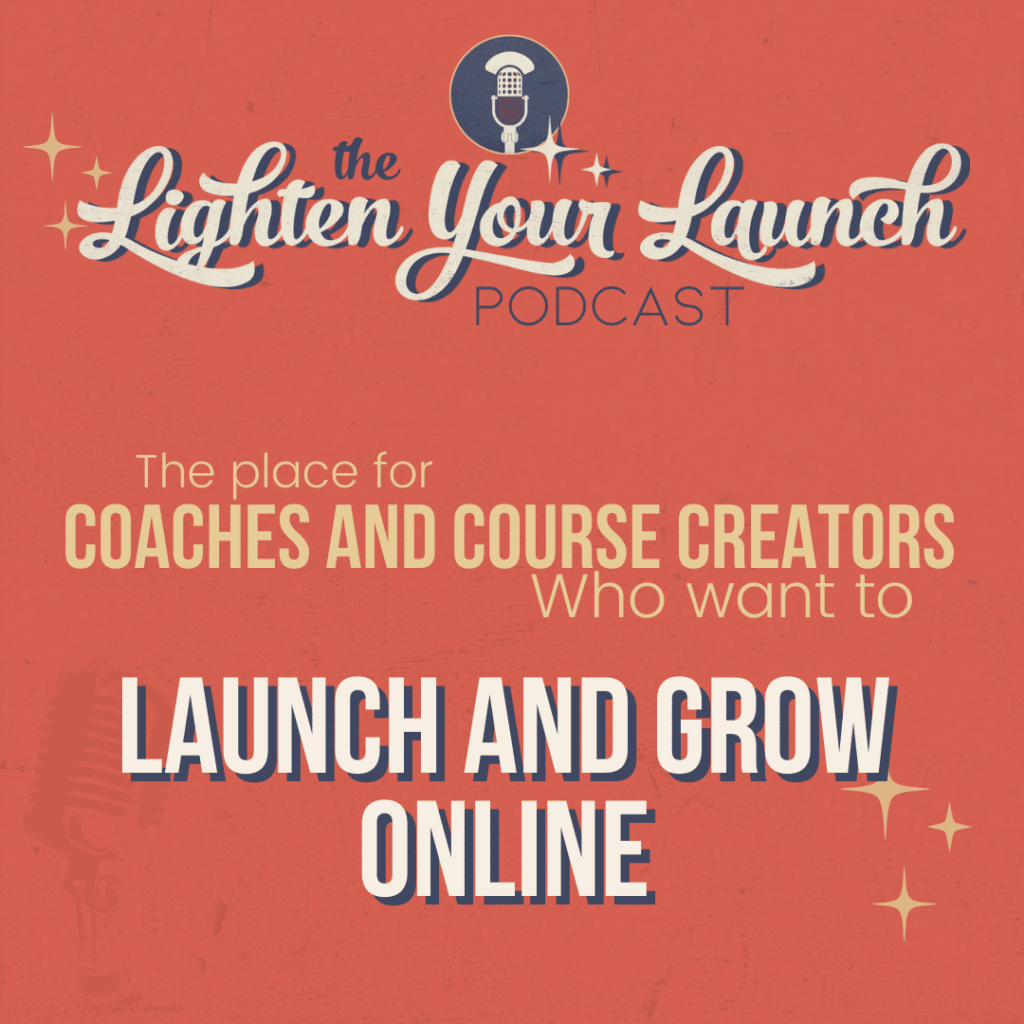
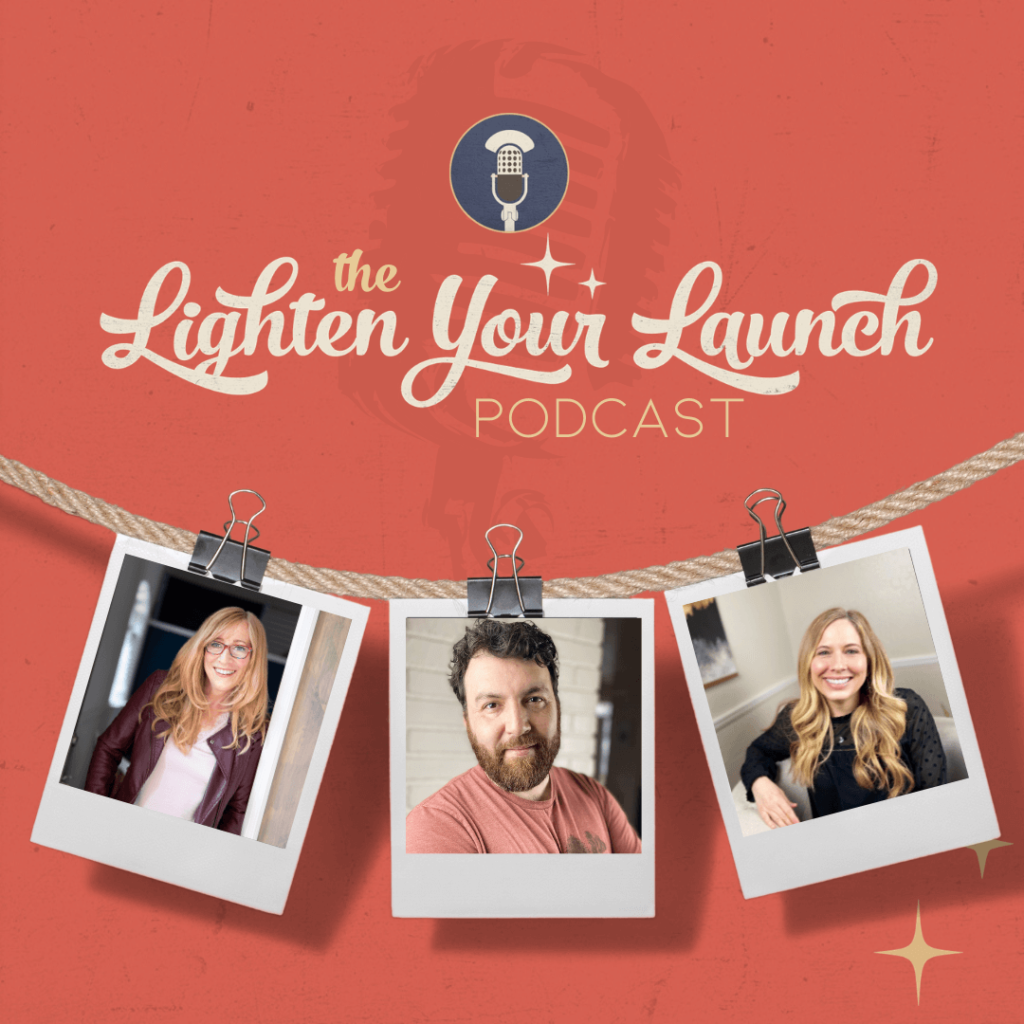


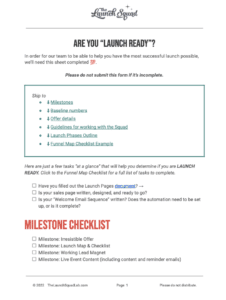
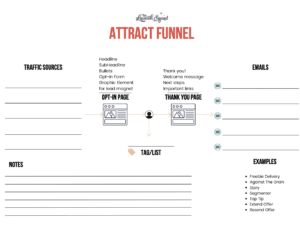
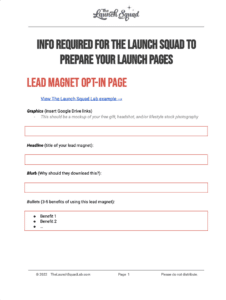
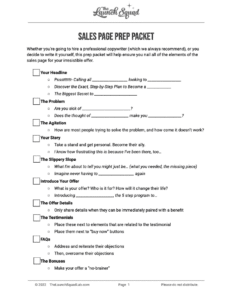
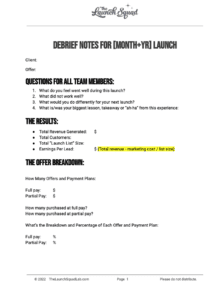
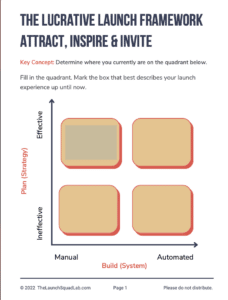
![Marketing Launch Calendar [TEMPLATE]](https://thelaunchsquadlab.com/wp-content/uploads/2023/05/Marketing-Launch-Calendar-TEMPLATE-300x260.png)
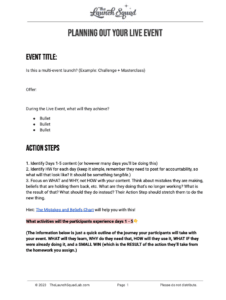
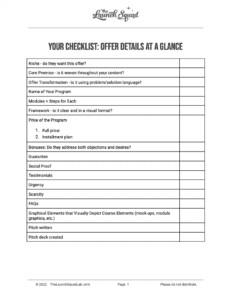
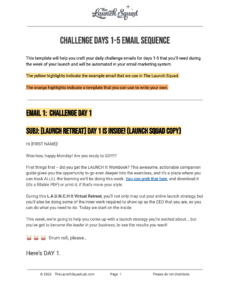
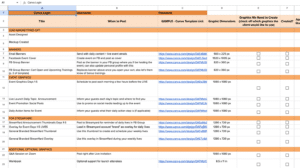
![[Updated] Email Templates for Launch](https://thelaunchsquadlab.com/wp-content/uploads/2023/05/Updated-Email-Templates-for-Launch-223x300.png)
![[REVISED] LS Pitch Script](https://thelaunchsquadlab.com/wp-content/uploads/2023/05/REVISED-LS-Pitch-Script-2023-226x300.png)

